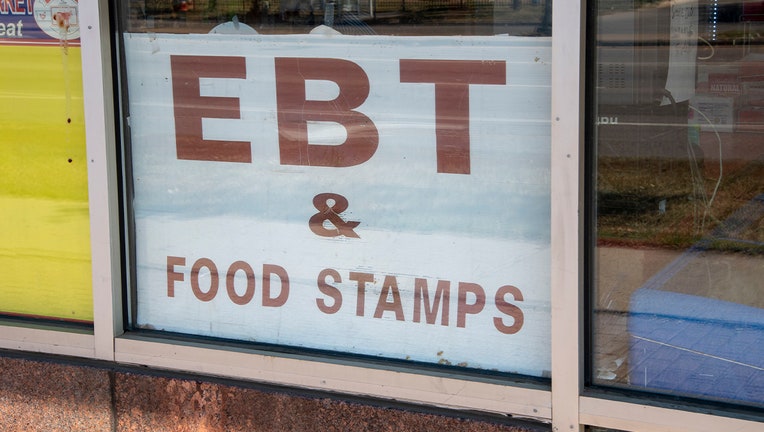SNAP expansion could cover medical expenses under MN proposal

St. Paul, Minnesota, Grocery store with sign in window accepting Electronic benefit transfer cards and food stamps. (Photo by: Michael Siluk/UCG/Universal Images Group via Getty Images) (Getty Images)
ST. PAUL, Minn. (FOX 9) - The SNAP program, which has historically supplied low-income households with funds to purchase food, could be expanded throughout Minnesota to cover medical expenses under a new proposal being considered by lawmakers.
A bill authored by Rep. Heather Keeler (DFL-Moorhead), would establish the Supplemental Nutrition Assistance Program (SNAP) medicine program in Minnesota to provide a monthly benefit of $175, in addition to assistance with obtaining medical or behavioral health assessments for participants who are at risk of losing federal SNAP benefits.
"This program serves so much more than just our children and families," Rep. Keeler said on Tuesday. "SNAP can also be medicine."
According to the bill, the SNAP medicine program would be a direct acknowledgment, "of the crisis created by a statewide labor shortage of mental health and other health care practitioners, and the multiple unmet needs of Minnesota's homeless adults."
To be eligible for the SNAP medicine program, a participant would need to be between the ages of 18 and 54, already enrolled in medical assistance or MinnesotaCare, and meet all other eligibility requirements for federal SNAP benefits.
As part of eligibility determination, a county agency or tribe must attempt to meet face-to-face or via Internet with a potential SNAP medicine program participant within 30 days to determine whether the participant's loss of federal SNAP benefits could be explained by illness, injury, addiction, disability or homelessness. They would also assist the participant in obtaining a current assessment by a behavioral health or medical professional to identify any barriers that would restrict their ability to comply with federal requirements.
While the person is waiting to be assessed, they would be immediately placed in the SNAP medicine program to prevent any gap in access to food resources. If the person was determined to be eligible for federal benefits, they would exit the SNAP medicine program for the federal plan.
A budget appropriation has yet to be determined to cover the costs of the program.
Under federal regulations, an eligible able-bodied adult who is between the ages of 18 and 52 and is without dependents is only eligible to receive food support for three months in a 36-month period, unless the person is exempt from the time limit or is meeting monthly work requirements. After the three-month period, an applicant must earn additional months of eligibility by working at least 80 hours per month, or participating in employment and training activities.
In addition to covering medical expenses, the proposal would also place a two-year stoppage on terminating federal food assistance for eligible individuals. The moratorium would be in effect from July 1, 2024, to July 1, 2026.
To oversee the program’s effectiveness, the commissioner of health would study the impact of the SNAP medicine program, and submit a report to legislative committees governing food support and health by Jan. 1, 2027.
The proposal was approved by the House Children and Families Finance and Policy Committee on Tuesday and was re-referred to the House Health Finance and Policy Committee for further discussion. It will face several stops before potentially being signed into law by Minnesota Governor Tim Walz.

